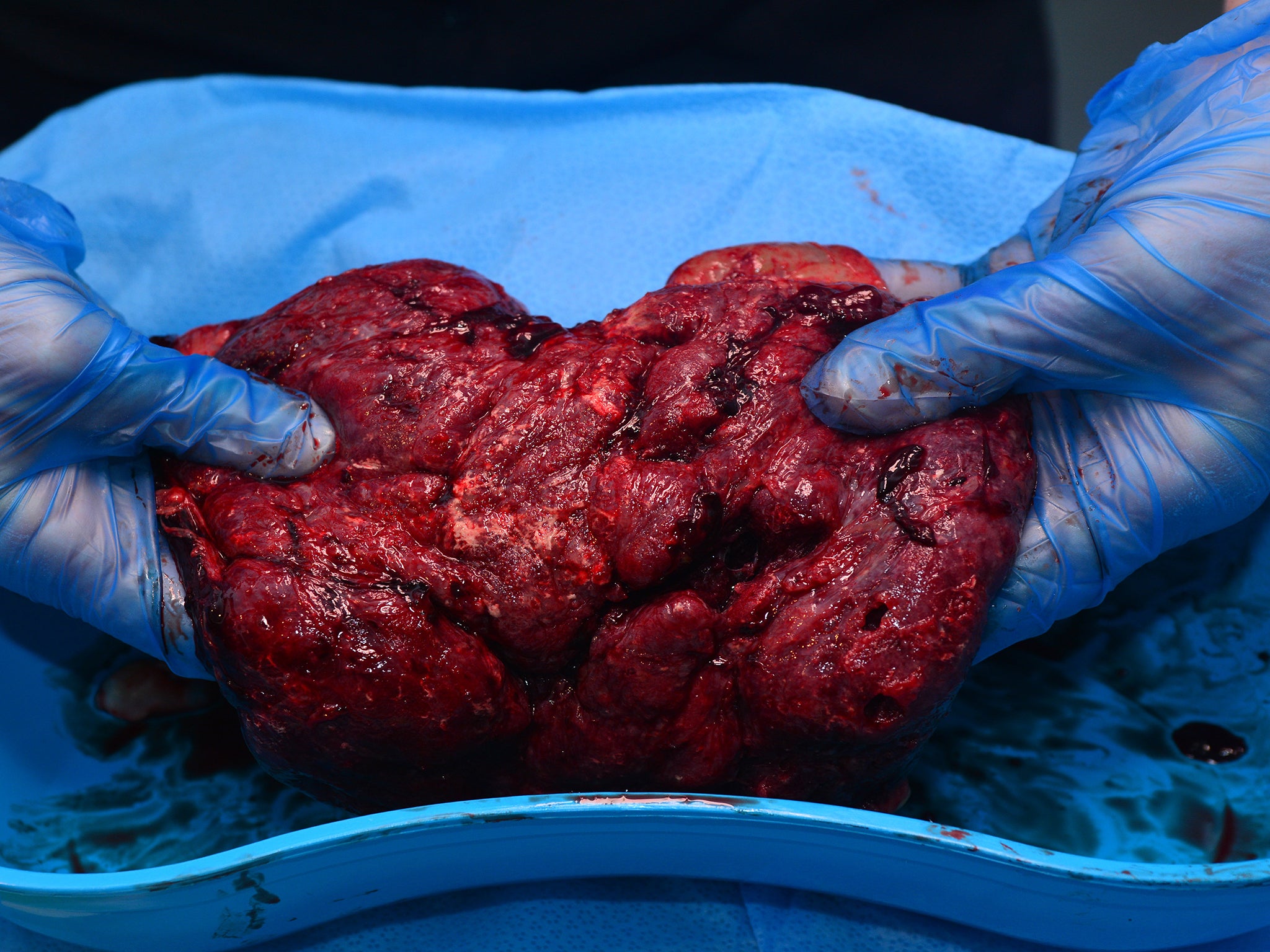No evidence eating placenta after giving birth provides health benefits, says research
A review of 10 studies on placentophagy in humans and other mammals did not find any scientific evidence to back up claims

There is no evidence that mothers who eat their placenta after giving birth receive any health benefit, research has found.
A review of 10 studies on placentophagy in humans and other mammals did not find any scientific evidence to back up claims that eating the placenta, either raw, cooked or in pill form, offers protection against postnatal depression.
Neither was it found to help with other issues such as post-delivery pain and lactation, nor to promote skin elasticity, enhance maternal bonding or replenish iron in the body, the research carried out in the US by Northwestern Medicine found. There has been no research into potential risks from eating the placenta, which has become a celebrity trend in recent years.
Louise Silverton, the director for midwifery at the Royal College of Midwives, said it was not something that midwives would recommend: “As this paper finds, there is little or no evidence around women eating their placenta.
“There may be potential dangers in doing so, though again there is no evidence to support that either.”
Subscribe to Independent Premium to bookmark this article
Want to bookmark your favourite articles and stories to read or reference later? Start your Independent Premium subscription today.

Join our commenting forum
Join thought-provoking conversations, follow other Independent readers and see their replies